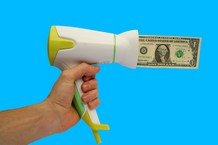This Lease Provision Won’t Protect You
Despite Lease, Landlord May Have to Pay for Tenant’s Accidental Damage
by Janet Portman, Inman News
Q: My landlord has demanded that I reimburse him for the cost of repairing damage that was caused by a fire in my apartment. Here’s what happened:
 I purchased a hair dryer, used it once, and left it plugged in (but turned off). The dryer’s switch must have been defective, because somehow it turned itself on during the night and ignited.
I purchased a hair dryer, used it once, and left it plugged in (but turned off). The dryer’s switch must have been defective, because somehow it turned itself on during the night and ignited.
The landlord admits that it wasn’t my fault, but claims I’m responsible, because my lease has a clause that says I’m liable for the results of my acts (“Lessee shall be liable for all damage to the premises and appliances and equipment belonging thereto, in any way caused by the acts of lessee, lessee’s occupants, guests and invitees”).
A: It’s one thing to make tenants responsible for damage caused by their careless or negligent acts — and certainly for their intentional acts — and landlords do this all the time. Had you carelessly left a pot on the stove, for example, any resulting fire damage could rightly be attributed to you, even if you didn’t mean to burn down the kitchen.
And, at the other end of the spectrum, landlords will be responsible for the consequences of their careless acts — such as performing a repair in a shoddy way that results in damage or injury. Leases and rental agreements routinely remind tenants of the first rule (though they rarely remind them of the second).
Your lease clause goes a lot further, making you responsible for the results of all of your acts, even those that were not intentionally harmful or negligent. Because you did, in fact, plug the hair dryer into the wall, you’ve committed an act that would bring you within this clause. But whether a court would enforce it is another matter.
Many states have comprehensive landlord-tenant laws that apportion the responsibility for repairs and maintenance between landlord and tenant. They typically make owners responsible for repairs and maintenance in general, and also address situations when the damage has not been caused by the tenant.
Consider, for example, the typical rule that makes the landlord responsible for damage that results from the owner’s negligence; the common duty of a landlord to make repairs to a non-negligent tenant’s unit when it’s damaged by a negligent tenant; and the landlord’s duty to repair (and pay for relocation costs) when a fire makes a tenant’s unit unlivable, no matter who started it.
Taken together, these rules point to the landlord as the one who should step up when the property is damaged through no negligence or fault of the tenant. In other words, in these states, a court would not uphold a lease provision like yours, which holds you responsible for even your non-negligent acts.
Your point about property insurance is well taken. Of course, landlords have fire coverage precisely to cover situations like this. The landlord’s insurance company will surely cover the cost of repairs, and then it’s up to them to go after (in insurance lingo, “subrogate“) the true cause of the fire — the manufacturer of the hair dryer.
Likewise, your landlord could sue the manufacturer for the deductible that he had to shell out. But looking to you, an innocent consumer who was presumably not misusing the dryer, would be pointless.
Janet Portman is an attorney and managing editor at Nolo. She specializes in landlord/tenant law and is co-author of “Every Landlord’s Legal Guide” and “Every Tenant’s Legal Guide.” She can be reached at [email protected].
Copyright 2009 Janet Portman
To subscribe to our blog, click here.















 Accessibility
Accessibility